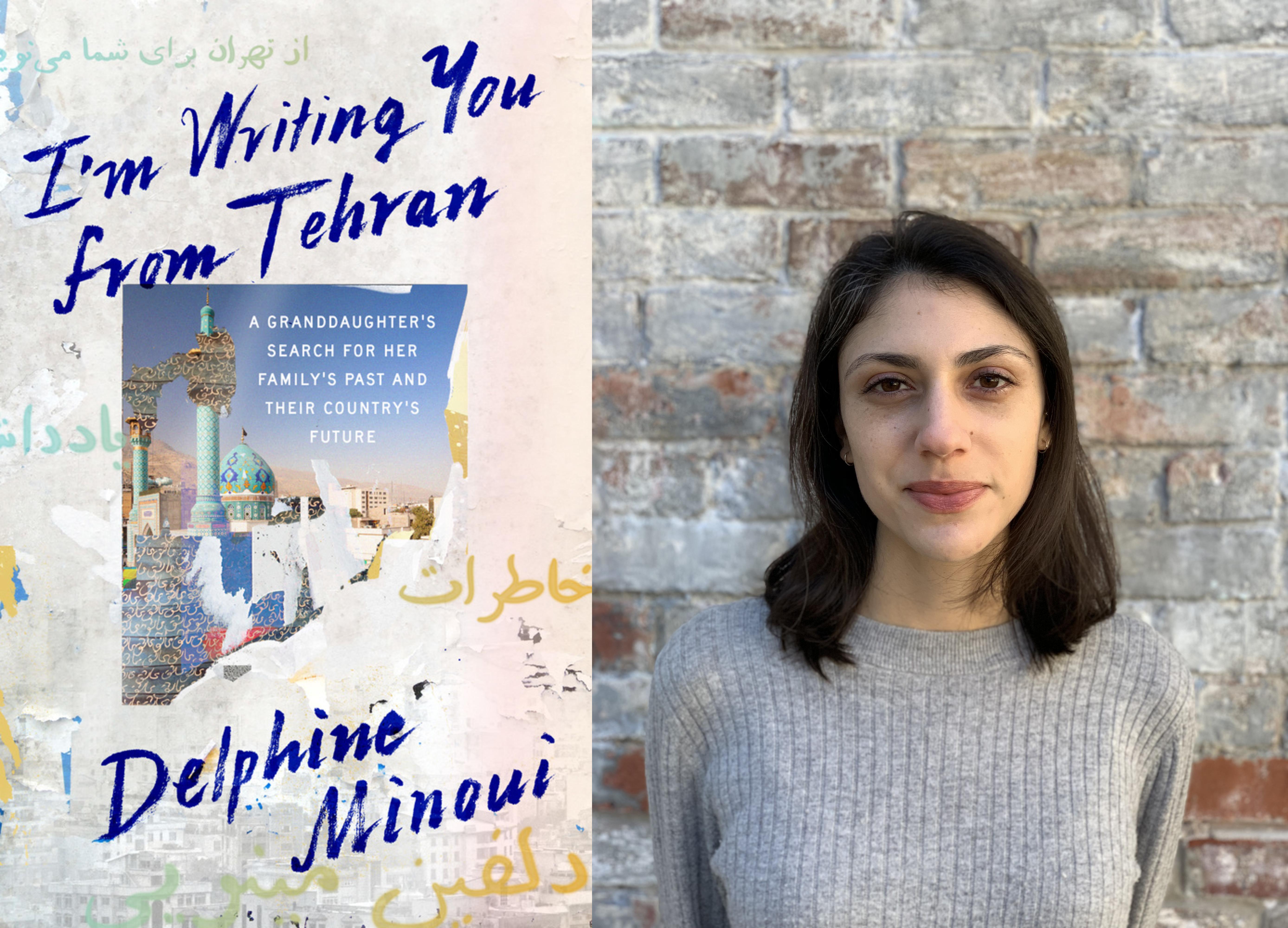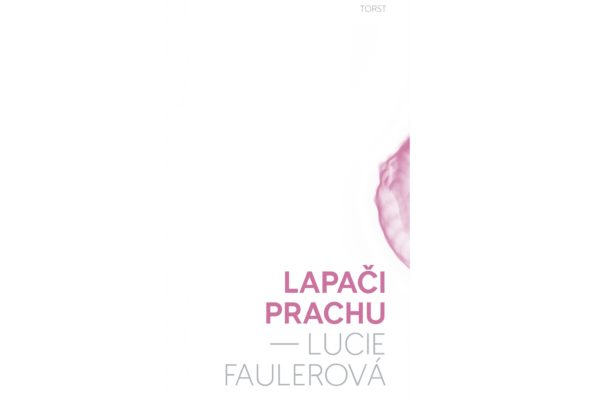Translated by Frances Riddle
—
I think I fell in love with my uncle Gabriel before I even knew what being in love was. Big loves are like that, and a big love wasn’t something strange in a family that did everything big. My father was a big athlete and my mother bragged that hers had been a big lawyer. They liked to speak that way: he was a big criminal; she was a big talker, a big politician. The good and the bad, practiced by people of character, took on this dimension. About Gabriel they said, above all, that he was a big smoker. Wherever Gabriel went, there was smoke. The cigarette was a part of his body and he was, in my opinion, the best part of my family.
The sinuous white smoke floated for a few minutes, as if it were his ghost, after he closed the door and left. It also preceded him when he came to visit. My brothers surrounded him, shouting. I ran to get his favorite glass ashtray, big and deep like the whisky glasses that were in fashion – and if it was in fashion, we had it. My mother took care of the records. My father took care of the ice cubes. They knew how to drink. Sometimes their speech slurred a little but they were fun.
Gabriel sat on a yellow velveteen couch. My brothers wrestled with him and then went to their room to fight for real. I sat beside him. I watched him as if he were a television program while I ate candy and cookies with the same intense pleasure, happy and mechanical, with which he smoked. I was a big eater.
Gabriel smoked Parliaments. LMs, he said, tasted like a sugar cube and Jockeys tasted like two. Kents were like straw and Pall Malls were bland. Among the imports he preferred Gitanes and Dunhills. He liked smoking so much that in times of tobacco shortage, when he couldn’t get Uruguayan cigarettes, he made do with dubious brands that sprouted out of nowhere, or out of necessity. I once saw him open a package of Via Apias. I felt that mix of compassion and admiration that one feels for a hero fallen on hard times.
I was ten and I wore a size 14 but it didn’t bother me. In my class there was a really fat girl, Silvia Costella, and I laughed at her pudginess to spare myself from the other girls who directed their cruelty towards me. I had plenty of inspiration. The things my brothers said to annoy me became the scripts for my jokes about Costella. Also, next to her, I looked better in photos and I liked that because as the only female child, I was working for posterity. I can’t say that I did it on purpose but not for nothing I felt guilty when I thought about Silvia Costella. Kids aren’t good or bad but sometimes it’s best not to measure.
When Gabriel came to visit us and we were alone I sat on his knees and hugged him. I put my face next to his. He placed a cigarette in his mouth and tilted his head back to release the smoke, with that gesture that I can now repeat, identically, so many years later. I once rubbed his chin and he laughed. Another time, I kissed him on the neck and caressed his face. Gabriel smiled, patted my back, and put me on the floor. He rubbed my head and told me to go get him a glass of water. I ran to get it. If he had asked me to do more difficult things I would have done them too. The hardest thing was wasting the little time I had to spend with him.
When Gabriel wasn’t visiting I still had a good time in my private world, as long as my brothers didn’t interfere with my life. I locked myself in my room to recreate big scenes of passion from movies. I also played rounds of a game that did not yet have a name, with the edge of the table, a pillow, my precious fingers. I talked bad about Silvia Costella over the phone. I watched movies on TV, where the actresses of my mother’s generation and my grandmother’s generation were lumped together. Elizabeth Taylor, Vivian Leigh, Lana Turner, Sofia Loren, and Raquel Welsh were all the same age to me because they inhabited the same screen. They had extreme cleavage and they gave long kisses. It made you want to do the same. You couldn’t sit still. Some things are contagious and I practiced those scenes. I was a good student. I had potential.
I also had a diary full of hearts and arrows that said Gabriel. That’s how strong it was. Something that declared itself when I picked up a pencil. Something that preceded even my imagination. I hid the diary but my brothers found it anyway and they didn’t hesitate to tell my parents that I was in love with Gabriel. My mother thought it was ridiculous. My father brushed their heads with a rough smack and told them to leave me alone.
Gabriel was the center of all my attention. I once stole a handkerchief from his jacket and smelled it, secretly, until I fell asleep. Another time, I stashed between the pages of my diary a sheet of drawings he had made while he talked on the phone, smoking. When he asked me to hold his coat while he helped my parents move the couch I was one of the happiest girls in the world.
Gabriel was a bachelor. He brought his lady friends over for birthdays and holidays. My parents divided them into two groups. There were the pretty ones, and the interesting ones. They all smoked like Gabriel and one had a cough that was identical to his. My brothers laughed hysterically and turned red. Poor girls, my mother would say with pride. Your brother again, my father said through clenched teeth and a complacent smile. Blondes, professors, models, secretaries, students. Once, one called my mother and cried on the phone. Another time, another one showed up at our house asking for my uncle. My mother shut the door, ran into the dining room, and said to my father: I told her the truth, he doesn’t live with us and anyway he’s out of town. Gabriel was a big seducer.
That summer we rented a house in Chapadmalal and Gabriel came to visit us with a girlfriend. She was bigger than the others, wore a white bathing suit, she had amazing hair and my father said she had a formidable body. Gabriel lit her cigarettes and handed them to her. He ran to open the car door for her. He gave her his jacket when she was cold. He called her gorgeous. Gorgeous this and Gorgeous that. Gorgeous got headaches a lot.
Through my bedroom window I watched the couple as they walked down the beach against the wind. I stayed shut in my room for three days with a bad fever. There was no TV in the house so I read and ate and spied on the lovers through my window. They stopped, every once in a while, to light a cigarette. At night they listened to music with my parents. They spent a lot of time locked in their room.
One afternoon I saw Gorgeous on the porch. Her eyes were swollen and her breathing was agitated. She wasn’t like the others. Gorgeous was different. That night, when we asked about her at dinner, Gabriel told us she had left. Then he drank all the wine from his glass in one gulp. My father made a joke but no one laughed. My mother frowned at him. We got up from the table and that night no one listened to music or played cards. Gabriel went to his room and when my mother asked him if he was going to bed he said he wasn’t tired. He didn’t want to play with my brothers and he kicked them out, brusquely, when they went looking for him.
I killed time in the kitchen and then I went into Gabriel’s room. The door was half open. The bed was unmade. There was an ashtray full of butts on the nightstand that Gorgeous had used.
Gabriel was sitting in an armchair, his head in his hands. His cigarette was going out between his fingers and I thought he was going to burn himself. He put it out and lit another, automatically. He opened the pack, took out a cigarette, hit it twice against the arm of the chair, and lit it with his Ronson lighter, but he was in another world. He didn’t even move when the phone rang, like he took it as a given that Gorgeous was never going to call.
I went up to him and said hello. He gave me a reluctant glance. I sat on his knees and hugged him. I smelled his cologne and the traces of shaving cream on his rough, firm face. I touched his broad, muscular neck. Gabriel pushed me away a little to take a drag from his cigarette. He was coming back. He looked at the ash with his eyes half closed, as if he were calculating the mouthful of smoke he was about to release. I couldn’t contain myself. I gave him a kiss on the mouth. Like Vivian and Raquel, like Sofia and like Elizabeth. With that blend of yielding and tension that justifies a kiss. A big kiss. Gabriel tightened his lips closed. But I insisted, clinging to his neck, until I heard someone slam door behind me. Gabriel closed his eyes and shook his head. They had seen us.
That night Gabriel left Chapadmalal. The next day when my brothers asked why he had gone, my father told them not to butt into grownup matters. I went for a walk and I found my mother on the porch. Her eyes were swollen. She looked out at the empty beach, her hand shading her eyes. My brothers asked about Gabriel several times and my father always said the same thing. I didn’t ask any questions. Days later they announced that they had a surprise for me. They had invited, without consulting me, Silvia Costella. That was even worse than the absence of Gabriel but chubby let me persuade her and that summer we went away down the beach where no one could see us. It was really windy and we learned to smoke. Our first cigarettes.
—
Esther Cross has published five novels and two short story collections. In collaboration with Félix della Paolera, she’s edited two anthologies of author interviews, Bioy Casares On Writing and Borges, Conversations in the Literary Workshop. She also worked with Ángela Pradelli to edit The Bible According to Twenty-Five Argentine Writers. She has received various awards in Argentina and elsewhere, among them, the Fulbright Scholarship and the Civitella Ranieri Scholarship. Her translations include Eleven Kinds of Loneliness by Richard Yates and The Collected Stories of William Goyen. Her latest book, The Woman who Wrote Frankenstein, was published in 2013.
—
Frances Riddle lives in Buenos Aires where she works as a translator, writer, and editor-at-large for Asymptote journal. She holds a Masters in Translation and Interpretation from the University of Buenos Aires and a BA in Spanish Literature. She is a regular contributor to Asymptote‘s blog through the Publisher’s Profile series. Her translations, interviews, and essays have appeared in Asymptote and Palabras Errantes.




